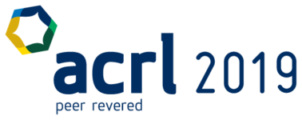Session Description:
As our profession changes, opportunities arise all around us; will you be ready when the door opens? Mentoring and professional development attentions often focus on early-career librarians, but your needs might have changed just when you graduated from all that helpful guidance. This session will help you map your own career plan, identify potential opportunities, as well as discover potential gaps and barriers to reaching them. The attendees will work together to develop strategies for modifying long-standing institutional and professional conditions to improve opportunities for mid-career librarians. Individuals will begin to explore their future career paths with intentionality and self-reflection.
